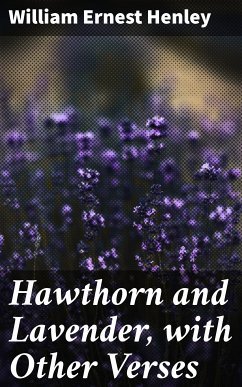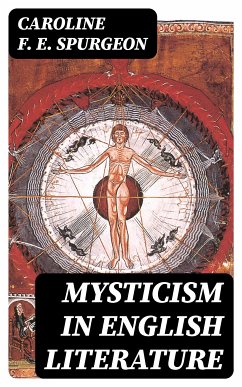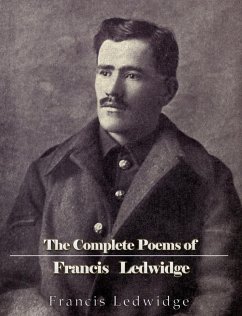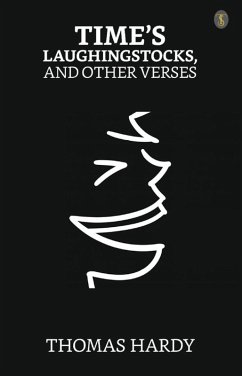
Hawthorn and Lavender, with Other Verses (eBook, ePUB)
Versandkostenfrei!
Sofort per Download lieferbar
0,49 €
inkl. MwSt.
Weitere Ausgaben:

PAYBACK Punkte
0 °P sammeln!
Hawthorn and Lavender, with Other Verses is a remarkable collection of poetry by William Ernest Henley, marked by its emotive language and skillful exploration of themes such as love, resilience, and the human condition. Written in the late Victorian era, the poems reflect Henley's distinct literary style, characterized by vivid imagery and a rhythmic cadence that invites the reader to contemplate the complexities of life. The collection showcases Henley's adeptness in balancing personal experience with broader existential questions, creating a rich tapestry of verse that resonates with sincer...
Hawthorn and Lavender, with Other Verses is a remarkable collection of poetry by William Ernest Henley, marked by its emotive language and skillful exploration of themes such as love, resilience, and the human condition. Written in the late Victorian era, the poems reflect Henley's distinct literary style, characterized by vivid imagery and a rhythmic cadence that invites the reader to contemplate the complexities of life. The collection showcases Henley's adeptness in balancing personal experience with broader existential questions, creating a rich tapestry of verse that resonates with sincerity and depth. William Ernest Henley was a prominent figure in the British literary scene, known for his fierce individualism and his struggle against adversity, particularly in his battle with tuberculosis, which ultimately led to the amputation of his leg. This experience inspired his famous poem "Invictus," yet his poetry in Hawthorn and Lavender also draws upon the beauty of nature and the simple joys of life, reflecting his deeply felt appreciation for moments of tenderness amidst suffering. Henley's background as an editor and critic further shaped his nuanced understanding of poetic forms and traditions, enriching his work. This collection is highly recommended for readers who appreciate the beauty of early modern poetry and seek a poignant reflection on the human experience. Henley's expertly crafted verses not only evoke emotion but also invite introspection, making this book an essential addition to any poetry lover's library.
Dieser Download kann aus rechtlichen Gründen nur mit Rechnungsadresse in A, B, BG, CY, CZ, D, DK, EW, E, FIN, F, GR, H, IRL, I, LT, L, LR, M, NL, PL, P, R, S, SLO, SK ausgeliefert werden.













